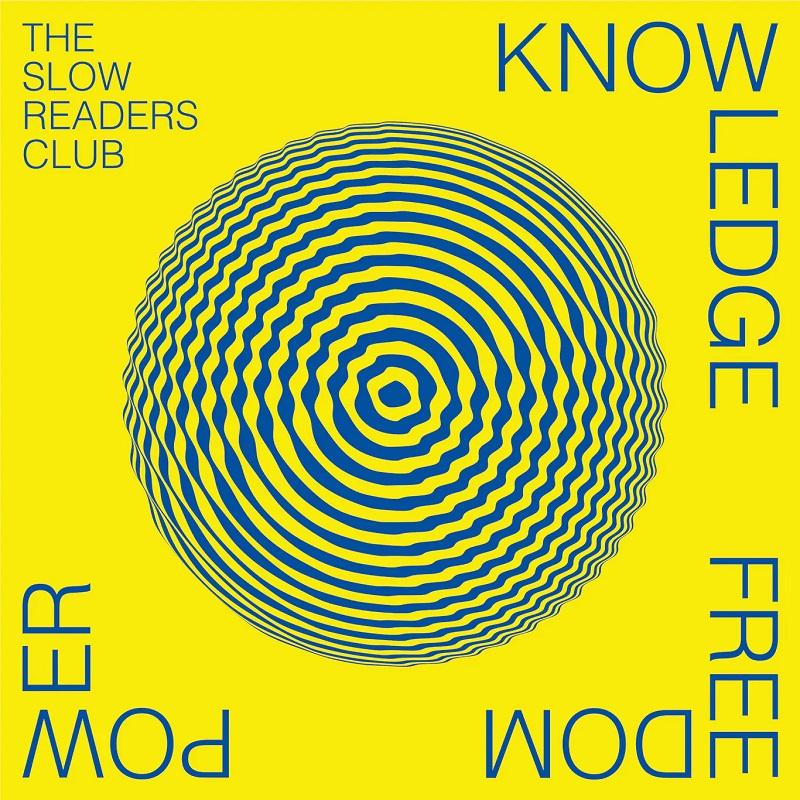
Some high points can be found on the new album from The Slow Readers Club.
The diminished cultural potency of rock bands has been evident to most music fans for at least a decade.
Some who are loyal to the cause bemoan its replacement at the high table of cultural appreciation by electronic-driven genres like hip-hop and dance, but for many there is a feeling that rock music, in all of its different guises, has simply grown stale; that it’s all been done before, and better.
Sweeping statements like this are always contentious and as such largely unhelpful, but clearly – whether of its own making or due to external forces – contemporary rock music has struggled to assert itself in popular culture for a while now.
Consequently, there has been a generation or more of bands that have come of age in an environment of widespread indifference towards guitar music from the record-buying — now mostly content-streaming — public.
It is into this milieu that The Slow Readers Club emerged with their debut album in 2011. 12 years on and the landscape of contemporary British rock music feels just as indistinct and wishy-washy as it did then, but what of The Slow Readers Club?
As before they stick rigidly to tried and tested songwriting formulas: a big, obvious chorus is always just around the corner or, if not a big chorus, then a pop-drop (where the hook is a big instrumental break, teed up by a more low-key chorus just prior to it— as in the case of the tacky, night club-baiting Forget About Me).
As seems to be the way with mainstream music at the moment, The Slow Readers Club try to have their cake and eat it too on each track.
Regardless of sentiment or compositional style every recording serves as a showcase for the band members’ individual strengths: for guitarist Kurtis Starkie’s ability to create atmosphere with layered lead playing and subtle use of effects pedals, or for Aaron Starkie’s octave spanning vocals.
Although the band’s performances are spirited, and producer Joe Cross (Hurts, Courteeners) gives them a big, open sound, none of these recordings sound like they were arrived at quickly.
Many of the songs on Knowledge Freedom Power are rather fussily arranged for what they are, and the constantly shifting dynamics — not in the subversive manner of Pixies and Nirvana, but like how Adele’s or Beyoncé’s gun-for-hire production teams might choose to arrange a track — grates after a while.
Perhaps this latest tendency within rock music towards overproduction is a result of bands not writing and recording material in bulk, as they used to do when expected to turn in new material on a yearly basis.
One can imagine the temptation for younger bands, schooled on ProTools, to try to maximise the potential of each and every song before moving on to the next one.
Whatever the reason for it, such a laboured approach to recording makes listening to a full album feel like a chore. The occasional lighthearted, throwaway track, recorded sparsely, could help a collection like this to breathe a bit, and in turn make it more pleasurable to listen to.
All the same, there is at least an EP’s worth of good material here. The propulsive opener Modernise is a visceral rallying cry to the masses, empathising with people’s plight at the hands of impossible bosses, societal pressures and overbearing fathers.
This track, along with the ‘positive sloganeering’ of the title-track, temporarily makes good on the promise of, ‘a sizzling synth-rock beast of a record’, as advertised in the album’s press release.
Comparisons with Manic Street Preachers are warranted for these two numbers but strangely it’s the bouncy and infectious Sacred Song that most closely mirrors the Manics.
The track’s melody, which is one of the album’s most pleasant, sounds exactly like something the Manics might have come up with around 2013-14, when they released two of their better 21st century releases back-to-back.
Also deserving of special praise is What Might Have Been, which pulls off the feat of being a self-conscious showpiece that manages to get away with it. Perhaps why the track works so well is because it packs so much in in under five minutes.
It sets the scene of a post-breakup depression with its verses, recalls the narrator’s initial sexual attraction with a strutting pre-chorus and finally transcends into a rather lovely, lighters-in-the-air chorus, fit with falsetto vocals that give the song a genuine yearning quality.
While The Slow Readers Club deserve credit for the quality of the material listed directly above, they also have room for improvement as recording artists going forwards to album number seven and beyond.





